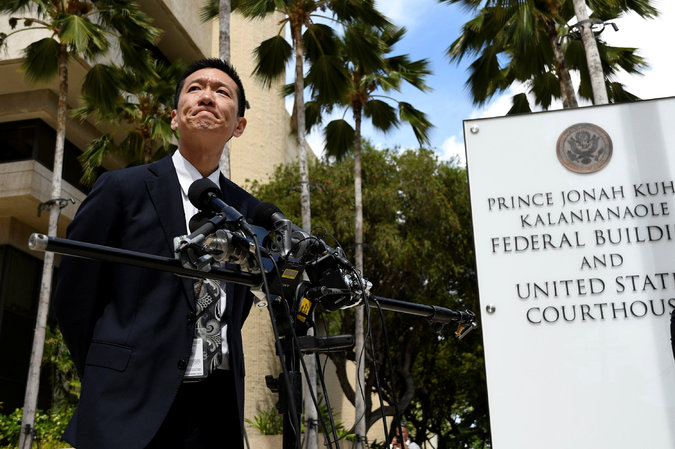A federal judge in Hawaii has stopped President Trump’s travel ban from being put into practice. The ban was set to begin on March 16 at midnight. However, US District Judge Derrick Watson stopped the occurrence from happening. Mr. Waston cited “questionable evidence” as his primary reason for his ruling, explaining that the government did not prove beyond all reasonable doubt that the ban was a matter of national security. The ruling prevents the implementation of the executive order, albeit temporarily. Previously, Hawaii had requested a temporary restraining order on the ban.
In his ruling, Mr. Watson wrote, “Enforcement of these provisions in all places, including the United States, at all United States borders and ports of entry, and in the issuance of visas is prohibited, pending further orders from this Court.”
While addressing citizens in Tennessee, President Trump described the judge’s actions as “unprecedented judicial overreach.” He has vowed to fight against the ruling so that his executive order can be fully implemented. “We’re going to win. We’re going to keep our citizens safe,” he said. “The danger is clear. The law is clear. The need for my executive order is clear.”
The Department of Justice has also come out in support of President Trump. In a press release on March 15th, the Department expressed strong disagreement with the ruling and described it as “flawed both in reasoning and scope.”
Sarah Isgur Flores said, “The President’s Executive Order falls squarely within his lawful authority in seeking to protect our Nation’s security, and the Department will continue to defend this Executive Order in the courts.” Sarah was the spokesperson for the Department of Justice in the press release.
However, not everyone thinks that the ruling is a wrong move. Senator for Hawaii Mazie K. Hirono said that the ruling was an example of an independent and impartial judiciary. Additionally, Hawaii Representative Tulsi Gabbard praised Attorney General Doug Chin from blocking the implementation of the order. He also called the travel ban “bad policy.”
New York Attorney General Eric Schneiderman also described support for the ruling, which he called “yet another victory.” He said, “President Trump’s second executive order is just a Muslim Ban by another name – with the same unlawful and unconstitutional goal of discriminating based on religion and national origin.”
The Hawaii government had argued that the travel ban would negatively affect their tourism industry. Further, it decreased their chances of recruiting international students and workers whom they significantly depend on. Also, the Hawaii government cited that some of its citizens would be unable to have their relatives visit them, infringing upon visitation rights.
The ruling came as those against the executive order continued to further their legal cases against the ban. Judges in three states had been asked to intervene in the travel ban’s implementation. The executive order would have resulted in a 90-day ban on people from six predominantly Muslim countries as well as a 120-day ban on refugees.
President Trump has said he will take the case “as far as it needs to go” so as to make sure the travel ban begins implementation across the country.




